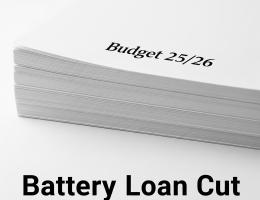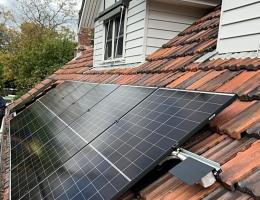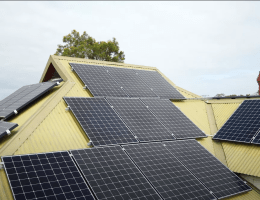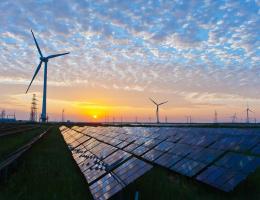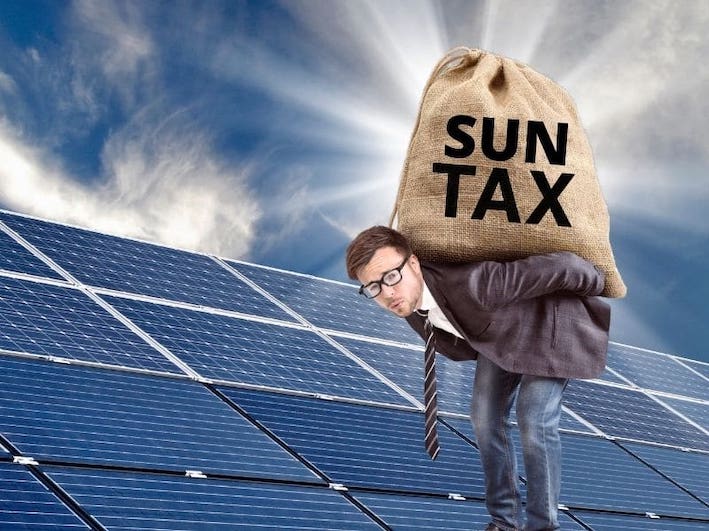
A new solar levy from NSW poles and wires company Ausgrid is a kick in the guts to Australians who have invested thousands to avoid fossil-fuel electricity use at home.
And worse, it is widely expected that future electricity consumers may not invest in adequate solar panel systems in order to avoid the levy, which instead of bolstering the power grid will just knee cap the build up of renewable energy.
Managing director of Pure Electric Matthew Wright said there are better, tried and tested, ways to manage the load on the grid instead of introducing new charges.
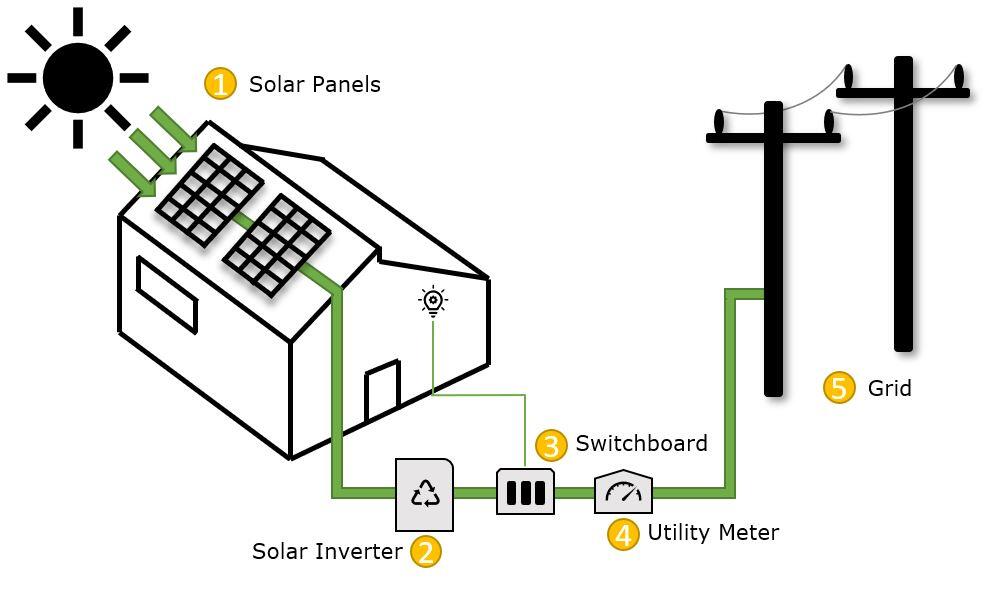
“It would be wiser to implement flexible exports that did not burden panel owners.
“Flexibility would allow for fair distribution of existing network over capacity amongst users, considering any local constraints,” said Mr Wright, who is also campaigns director at Zero Carbon Australia.
Ausgrid’s announced 1.3 cent/kWh tax on electricity exported to the grid from household and small business solar panels and this is just the beginning of a full on assault on consumers aspiring to rely on renewable energy.
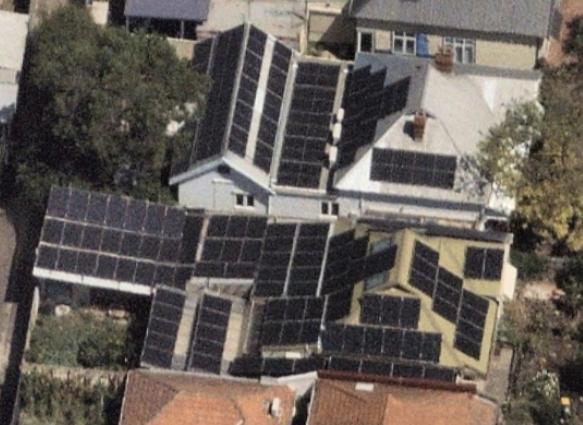
We know it is just the start because an Ausgrid spokesman described the tax as a “signal” to solar panel owners.
The revenue raised will be used to supposedly upgrade the grid to handle ever increasing solar exports from rooftops, yet the gold plated grid already has huge unutilised capacity for renewable uptake. It has the blessing of the Australian Energy Regulator (AER), yet nowhere to be seen is the cost Ausgrid will incur for such upgrades. How can the public do due diligence on Ausgrid’s claims that it needs to raise a new tax?
We already know Ausgrid’s commitment to upgrading distribution infrastructure is half-hearted thanks to a Nexa Advisory probe which uncovered that distribution networks devoted less than 1% of their expenditure on managing exports of rooftop power.
Mr Wright argues the need for the levy is redundant because the Federal Government has already committed $20 billion to the NSW electricity grid, including modernising distribution infrastructure as part of the Rewiring the Nation program.
“Essentially, Ausgrid is double dipping,” he said. Several years ago, the AER gave power distribution companies like Ausgrid its blessing to increase charges that would cover “improvements” to the electricity network. The exercise was subsequently outed as “gold plating”.
The companies had wildly estimated how much it would cost to enhance their poles and wires, and yet their original estimates were passed onto customers like us, with very limited evidence of the substantial improvements promised.
History is repeating itself. Ausgrid admits the short-term cost of upgrades is minimal but in future those costs will blow out. How fortunate it will already have a mechanism in place to ratchet up prices when it “plans” tomorrow’s upgrades.
In a flyer posted to the AER website, Ausgrid said: “… the network needs to change to support the exported (solar) energy while continuing to provide a safe, reliable supply to all our customers. There is a cost to making this change; while we expect the total cost increase over the next five years to be fairly small, it could grow significantly in the future.”
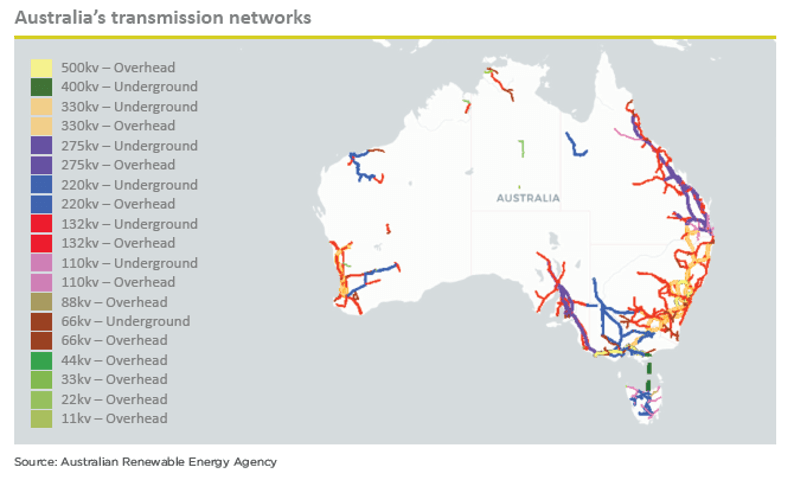
Equally galling is the repetition in the media and by social welfare groups of Ausgrid’s calculation that solar panel owners will only have to pay about $6.60 a year in new taxes for the upgrades that will supposedly make power bills fairer for struggling consumers who don’t have solar panels … really?
How is a $6.60 annual fee paid by a solar panel owner going to substantially lower the electricity cost for his neighbour who rents and doesn’t have panels?
The fact is that Ausgrid’s calculation is based on 1.2 cents/kWh for electricity exported above a free threshold of around 200kWh per month between 10am and 3pm. The more realistic estimate is that the tax would be in the range of $100 to $300 based on the average growing size of modern panel installations that actually have a bigger bang for their buck, making a substantial contribution to electricity supply and thus are better for the environment.
Then one has to laugh at the company’s improved offer of 2.3 cents/kWh for power exported in the evening, just when it is most needed by householders and of course solar supply is tapering off.
There is no guarantee the tax will enhance the use of network assets. There is no guarantee that Ausgrid will not pass down to consumers future costs of “gold plating”.
Mr Wright said: “The levy is a step backward, penalising the export of clean renewable energy, slowing down the adoption of solar and the zero emissions electricity grid we urgently need.

“If revoked, it would encourage the use of solar energy and only allow consideration of additional grid infrastructure once current capacity is fully utilised.”
He said SAPN in South Australia has demonstrated flexible export systems working at scale.
Ausnet is implementing it in Victoria and will be followed by Citipower and Powercor.
“How ironic that a company almost 50 per cent owned by the NSW Government, as Ausgrid is, is penalising solar exporters in a way its more capitalist rivals are not,” he said.
“Although, we should be mindful that two of its shareholders, BlackRock and Vanguard, are among the most profit-hungry fund managers in the world.
“Ausgrid’s money grab is not an answer. The Federal Government, NSW state government, the AER, and Ausgrid need to immediately postpone, then rescind this decision,” Mr Wright said.
